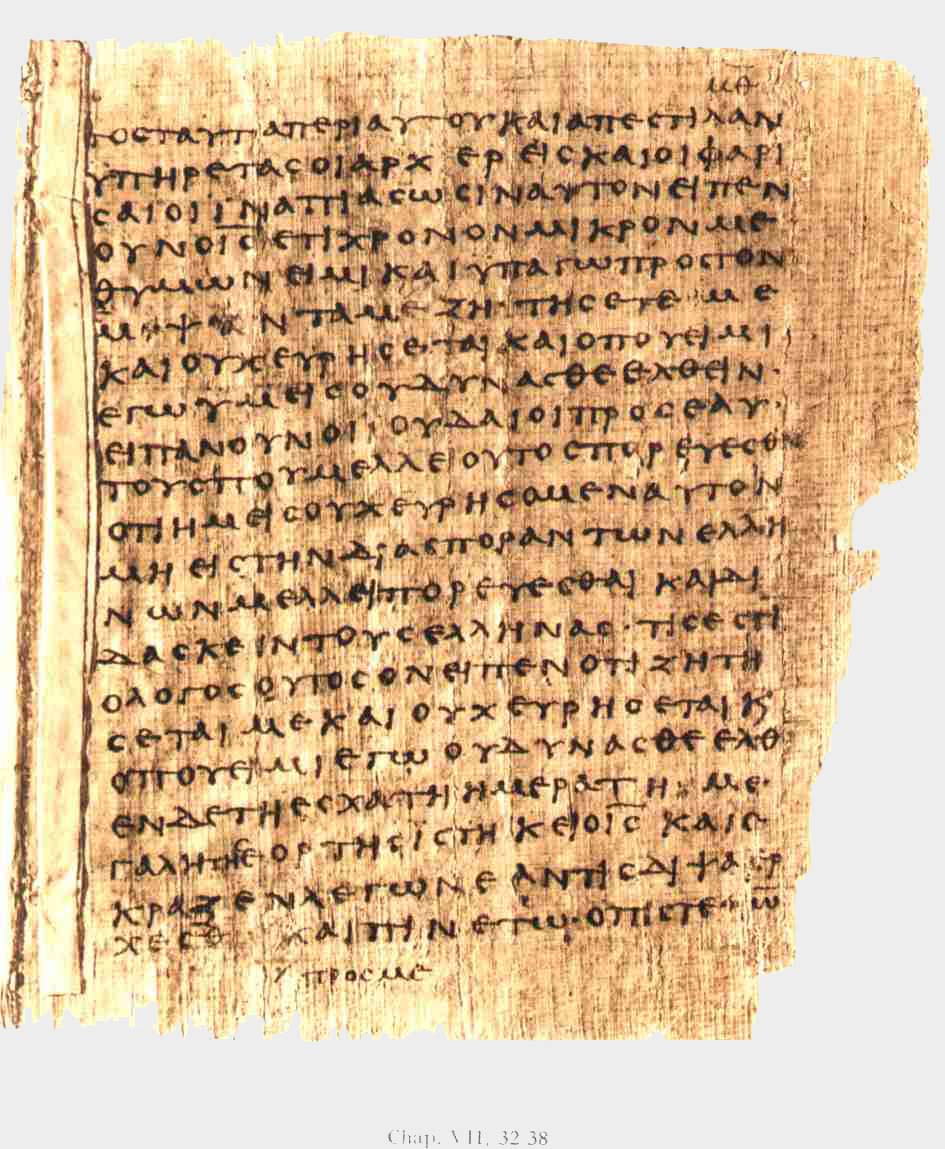
"Against unknown literal signs the sovereign remedy is a knowledge of languages. And Latin-speaking men, whom we have here undertaken to instruct, need two others for a knowledge of the Divine Scriptures, Hebrew and Greek, so that they may turn back to earlier exemplars if the infinite variety of Latin translations gives rise to any doubts. ...For there are some words in some languages which cannot be translated into other languages. And this is especially true of interjections which signify the motion of the spirit rather than any part of a rational concept. ...[a knowledge of this] is necessary on account of the variety of translations."
~Augustine, "On Christian Doctrine"
~Augustine, "On Christian Doctrine"
I really am fascinated by this new section of Christian theory / hermeneutics that we are studying in class, one that I think is so often neglected when studying the Bible in general. I thought of this quote when we were discussing the question of Biblical interpretation. Someone actually brought up the fact that when we interpret the Bible today for ourselves, we are actually "interpreting an interpretation," since the Bible wasn't originally written in English, but translated from the Greek, Hebrew, and Latin (not necessarily in that order - see, I don't even know how our English translation came about!). Therefore, choices were made when interpreting words and phrases from language to language, since Augustine himself talks about the discrepancies sometimes found between languages. And from this short talk on the topic, I was left with a lot of questions and thoughts on Biblical interpretation.
First off, let's just think about one of the questions we discussed in class as a spin-off from this main theme: Do all readers have authority to interpret a text, or do scholars have greater authority based on their greater expertise? From looking at the above context, it seems that only scholars would have the means to go back to the Greek, Hebrew, and Latin to see what the original texts actually said. Then they are able to aid us in our present-day interpretive quandaries. But the common person is not fluent in any of these languages, and therefore cannot even begin to see their original meanings. And with meanings also comes connotations to words. Each society attaches connotations to words and phrases, and different meanings come about for words as the years go on (just look at where a word like "gay" has come from over the centuries, and what it means now). So words and phrases that mean something to us now meant something totally different to the Biblical writers, hence where many of our interpretational difficulties come from. Now, commentaries are available for the common person who does not go to school for Biblical studies or for languages such as the ones mentioned above, but really, let's be honest, when was the last time any of us picked up a commentary or concordance when we read the Bible. I'll be honest: I never have, unless I had to for a class. And I've forgotten most of what I learned there.
I took my last Bible class last semester, and I will never forget something the professor said. Our study was going deep into historical contexts and into many other areas that I had never heard of in the church. The professor said that the average preacher would not know half of these things, for they do not go to school and study all the same things that Biblical professors study... their classes are different for the different degrees (I'm sure I'm grossly misquoting, but the point was that Biblical scholars often "know more" than the average preacher, and if they do know the same amount, there is no way they can cover such intense and obscure topics as we are talking about here in a Sunday sermon - they'd lose half the audience!). That leaves us with scholars who know more about the Bible, or can talk more about the Bible in different ways than the average preacher can on a Sunday morning, and therefore they have authority to help us interpret in ways we couldn't do because of lack of knowledge.
Going back to the beginning, the study of languages opens up a whole new arena for Biblical interpretation, because we are seeing the original language and what those words really were. And if we go into the historical context, we see what those words really meant to the people of that day. My Bible professor last semester often gave us the Greek interpretation of the passage we were reading, focusing on what the words really meant for the people then. It was an awakening for me. But in the end, that's as far as it went. I haven't researched any deeper into it (mostly for lack of time and energy, since life takes over with all its busyness). And that leads me to not be as much as an "authority" as my professor, since I do not know all that he knows. Yes, it is at my disposal with the advent of such a large dissemination of print texts, but I also need the time to go and find those books... and then read them.
In the end, I completely agree with Augustine, and even though I think we are all able to interpret texts in some fashion (isn't all of life an interpretation of sorts?), we cannot do it on the level that authorities can...







